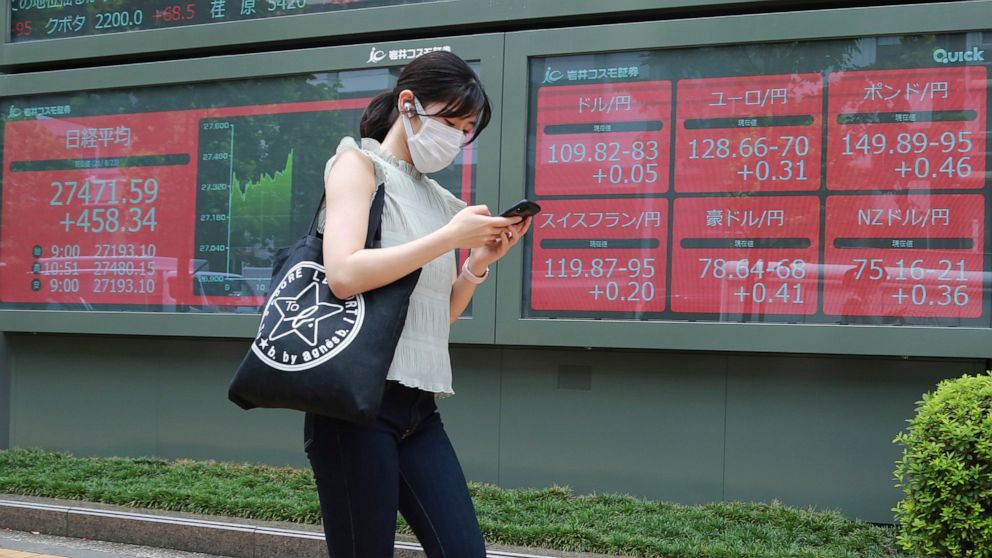Stocks rise broadly; Pfizer rises after FDA approves vaccine
Stocks were solidly higher Monday, led by gains in a broad range of technology, financial and health care companies
TOKYO — Stocks were solidly higher Monday, led by gains in a broad range of technology, financial and health care companies.
Energy stocks rose as the price of crude oil recovered some of the ground it has lost in recent days. Crude oil prices were up 5.5%.
The S&P 500 rose 1% as of 11:50 a.m. Eastern. The benchmark index is coming off its first weekly loss since July.
The Dow Jones Industrial Average rose 0.7% and the Nasdaq composite was up 1.4%.
Pfizer rose 3% after the Food & Drug Administration gave full approval to its COVID-19 vaccine. The vaccine had been under an emergency use authorization since December, but the full approval could convince some reluctant Americans to now get their shot and will likely give local authorities the legal backing to impose mandates.
BioNTech, a German drug manufacturer which developed the vaccine with Pfizer, rose nearly 10% on the news. Moderna, which developed a similar vaccine that uses the same technology, jumped 6%.
The market remains in a summer slowdown, with late August being historically one of the slowest times for trading with the exception of the Christmas holiday season. Markets are expected to pick up in volume and volatility after the Labor Day weekend.
Investors will be looking to the Federal Reserve as the Kansas City Fed’s annual conference in Jackson Hole, Wyoming starts later this week. It will likely provide Wall Street with more insight into what the Fed may do about inflation.
Last week, minutes from the most recent Fed meeting showed that policymakers had discussed reducing the central bank’s bond-buying program later this year to start winding down some of the emergency measures implemented during the pandemic. They stopped short of setting a firm timeline.
In economic news, sales of previously occupied homes rose at a faster-than-expected pace of 5.99 million last month, more than the 5.82 million economists were expecting.
![]()


